|
I was surprised to find that I had a free Sunday afternoon in August. But I did, so I went to Netflix and browsed my considerable “To Watch” list. The King caught my eye. The trailer evoked a sense of epic-ness, with politics and war and a character undergoing a personal transformation. The King came out in 2019, but I put off watching it, because it was the kind of movie I needed to be in the right mood to see. I was in the mood. I gave it a shot. Prince Henry (Timothee Chalamet), known to his friends as Hal, does not want to be king. He despises war and despises his father, King Henry IV (Ben Mendelson), a man who sees enemies everywhere and has plunged England into civil unrest. Once his father dies, Hal takes up the crown, vowing to be a different sort of king than his father. However, his reign is quickly tested by a series of provocative gestures from France. With his loyal friend and military advisor Sir John Falstaff (Joel Edgerton) and with the taunts of the French Dauphin (Robert Pattinson) in his ears, the young King Henry V advances to war, where his rule and his character will be put on display on the fateful field of Agincourt.
I have seen historical epics screwed up so many times. But this movie got it right. I loved The King. It was the kind of movie that seemed tailor-made for me. One of the things I most appreciated was that it didn’t attempt to women by throwing in a tedious romantic subplot. I like romance, don’t get me wrong, but Hollywood screws up it up so often that I’d rather they didn’t attempt it at all. The few women characters who did show up in The King were insightful and unique and treated with respect. Most of the movie dealt with a very masculine and male-orientated culture--and I was perfectly fine with that. Prince Hal is initially portrayed as a drunken, debaucherous prince, the insinuation being that he is unfit to rule. The trailer asks how this foolish, immature prince can be transformed into a respectable king. However, once I started to watch the movie, I quickly understood that it was not Hal's character that was in question. Prince Hal’s revelries are portrayed as a reaction to the violence that permeates Medieval Society. In these times, lords and princes did not stay cloistered in their castles; they fought and killed, in the battlefield, in the most intimate sort of way--Hal, included. Hal’s drinking is a kind of protest against his father’s rule, against the pointless death and killing, and against society itself. The old king calls Hal sickly and weak, and yet he turns out to be a damn good fighter. The nobles think he is shirking his responsibilities, and yet Hal will intervene when he deems it important. The problem is not Hal’s character; the problem is society. Society not only perceives Hal wrongly, it is, in fact, sick. Pointless feuds and violence are destroying the souls of its men, Hal’s included. As much as I was enjoyed Hal and his journey, my favorite character was, hands down, his loyal friend, Sir John Falstaff. Falstaff, more so than Hal, plays the role of a drunken fool, but he has an inner strength and wisdom born of hard-won experience. Falstaff has shades of Uncle Iroh, from Avatar: the Last Airbender, which I say with the highest respect, because Iroh is one of the few characters I not only love, but aspire to be. The beating heart of The King is the relationship between Hal and Falstaff, and I would absolutely take their friendship over any contrived and shallow romance. The first half hour of The King is a lead-up to Hal becoming king, and it serves to inoculate the audience into Medieval society. Some people may find this slow, but I was fascinated by this glimpse into a very different culture; it reminded me of why I loved history. I did have a bit of trouble understanding dialogue, which could be due to the sound quality on my TV. I remedied this by turning on the subtitles. The dialogue, by the way, is peppered with modern curse words, but on the whole, I think it did a good job of giving us the flavor of the era while still being relatable. The King felt Shakespearean but translated for a modern audience. Once Prince Hal becomes King Henry V, the plot builds to the Battle of Agincourt. Now, I don’t consider this a spoiler, because The King is historical fiction, and so it seems fairly obvious that the event that made a famous person famous is going to be addressed. But if you are sensitive to spoilers, I will make it now known that I will be discussing an event that takes place toward the end of the movie.
0 Comments
Typically, my plans for the 4th of July include hanging out with my family, eating hot dogs and hamburgers fresh off the grill, and making some kind of red, white, and blue dessert. But with COVID-19 raging, I was only able to do one of those three things, i.e., stick some strawberries and blueberries on a store-bought vanilla cupcake and call it a day. From my quarantined apartment, I called my family to wish them a happy Independence Day, ordered a pizza, and watched Hamilton on Disney +. It seemed like the most patriotic thing I could do.
Hamilton tells the life story of Alexander Hamilton, one of America’s founding fathers, who is most famous for co-authoring the Federalist papers, setting up a national bank, and dying in a senseless duel. In this musical play, Alexander Hamilton (Lin-Manuel Miranda) is an immigrant who is “young, scrappy, and hungry” and sees the America Revolution as a way to make a name for himself. Unlike his friend Aaron Burr (Leslie Odom Jr.), who advises him to “talk less, smile more,” Hamilton is vocal about his beliefs, and his gutsiness lands him a position under George Washington (Christopher Jackson). With his loyal wife Eliza (Phillipa Soo) by his side and famous friends, Hamilton rises to the heights of political power--and starts to self-destruct. As his fateful death draws near, what will his story be and who will be the one to tell it? I can’t deny Hamilton was well-done. The music, the dance, the spectacle--it is beautifully crafted, it is impressive, and it hits your emotions hard. But it hit me in a way I didn’t expect, and that’s really what I want to write about. After watching it, I raged, I cried, and now I am going to rant. This is your warning. I have strong opinions about the role of women in Hamilton, and I am going to express my opinions. But first, I want to talk a little about what the play actually is. Hamilton is a big, splashy Broadway musical first and a historical fiction second. It’s not meant to be a critique of history; in fact, I would go so far as to label it a revisionist fantasy. It reinterprets American history through a modern lens, not unlike how certain Shakespeare productions reinterpret their source material. This makes history recognizable to a modern audience, and because we recognize it, we can relate and empathize. Although it includes some politics, Hamilton is, for the most part, about the men who struggled through impossible odds to create a new country. It is a personal story set amid an epic backdrop. In other words, my kind of story. I enjoy a good epic. Hamilton makes a conscious choice to cast people of all colors and races in roles that are historically White. I find this refreshing and inclusionary. I know that some critics have said that, in this environment, simply re-casting the Founding Fathers doesn’t go far enough; we need to look more critically at American history. That may be, but I think I understand what the play’s creator, Lin-Manuel Miranda, was trying to do. I remember, in high school, I would grapple with history, trying to make sense of it and see myself in the people who changed the world. Lin-Manuel Miranda obviously saw himself in Hamilton, an immigrant, who, through ambition, intelligence, and hard work, was able to leave his mark on American culture. I don't think there's anything wrong with this. This is, after all, art, and art does not always have to be accurate. It can be fun. Hamilton is trying to be fun. It’s like kids playing dress-up. It has that joyful feeling of imagination, the boundless possibility that you can do anything and be anyone you want. And I like that feeling. As the play progressed, I found myself getting swept up in a patriotic fervor. When the Battle of Yorktown raged and Americans toppled an Empire, I felt proud, I felt happy. I thought, I am this and this is me, and I am America. In this moment, I felt bonded with my country. And then I glanced in the background of the stage and saw the women walking back and forth like ghosts. That’s when the sour feeling hit me. I realized not everyone is included; women don’t get to have fun. Yes, women are present in the play, but they’re all love interests, and moreover, love interests to Hamilton. A few background dancers are women, but they are not given names or songs. They are like the real women in history, I suppose, living and dying and doing their part to change the world with no name and no fame and no glory. “Who tells your story?” the music asks, but for women, the answer is, “No one.” This an excerpt from a fantasy/ romance/ historical fiction I've been working on during quarantine. In an alternate version of America, where magic is commonplace, a witch and wizard have adventures as they travel the country in pursuit of magic and gradually fall in love. Right now, I call this story Hazel and Saul, after my main characters, but the title is subject to change. This is a second draft, which means it's pretty early on in the writing process. I haven't added a lot of details and description, and the prose is rough. This scene takes early in the story, when the title characters first meet. Hazel Meets Saul Pennsylvania, October 1870 He was worse than a peddler. The wizard stood at the gate of her aunt’s house, banging on the door for a good ten minutes. Hazel could tell he was a wizard by the gaudy purple cloak he wore, popular among only the lowest rung of that profession. Hazel had made the mistake of peeking out through the window to see what was making the noise. Unfortunately, he’d seen her, and his rapping had only grown more furious. “Miss Blackwood! Miss Blackwood!” he cried. Hazel pressed her hands to the side of her head. She had a terrible headache and his pounding on the gate only made it worse. She’d been sick these last three days and wanted nothing more than to curl up and rest. But here was this annoying creature, disturbing her peace. “Miss Blackwood! A word, please! Just a word!” Hazel sighed. From his voice he sounded rather young. Young and full of energy and shamelessly relentless. She decided she wasn’t going to get rid of him, so she put on her cloak and bonnet and hobbled out. It was cold and chilly, and the wind on her face made her shiver, despite the warmth of her cloak. She walked down the path through the front yard until she reached the gate. “Ah, Miss Blackwood!” The wizard sounded relieved. “Thank you for your indulgence. I crave but a moment of our time. You are Miss Blackwood, are you not?” “I am, but--” “My name,” he said with a flouncy and exaggerated bow, “is Solomon Felix Zephyrus, an apprentice wizard of distinction, and I have a proposal for--” He stopped and blinked. He leaned forward and stared at her face, as if seeing it for the first time. “You’re young,” he said, with some dismay.
I had been wanting to see 1917 since the fall of 2019, when a critic compared it to The Lord of the Rings. That was all the sell I needed. I had to wait until after Christmas for it to expand into theatres. But the holidays brought chaos to my personal life, with moving on the one hand and sinus infections on the other. The Oscars came and went, and my life still didn’t calm down. Finally I said, “To hell with it,” and bought a matinee ticket for a Tuesday showing in the middle of February. 1917 is World War I drama done in (seemingly) a single shot. Lance Corporal Blake (Dean-Charles Chapman) and his friend Lance Corporal Schofield (George MacKay) are sent across no man’s land to deliver a message. Colonel MacKenzie is leading two battalions into a trap, and Blake’s brother is among those at risk. Although the territory they must cross seems, on paper, to be deserted by the German army, it is fraught with many perils, as they encounter boobytraps, snipers, and challenging terrain. 1917 struck me as a mash-up between an action-adventure video game and a “best of” compilations of the horrors of World War I, with moments of poignant human drama thrown in. This sounds like an insult, but I don’t mean it to be. I liked the movie. However, I was ambivalent about the use of the single shot gimmick. On the one hand, I marveled at how they managed to make this movie. They couldn’t have just built several miles of trenches, a village, a river, and a patch of woods in a studio somewhere. Could they? Even if they did, can you imagine coordinating all the actors, all the extras, all the stunt doubles, all the props, and all the cameras? If everyone didn’t hit their mark exactly right, the whole thing would fall apart. I left 1917 wanting to watch a documentary about the making of the movie, just to see how it was done. On the other hand, constantly thinking about how the movie was made distracted me from the story being told. In most movies, I don’t think about where the camera is positioned or what it's doing, but here it was all I could think about. It almost felt like the camera was its own character, like a first-person video game avatar or maybe a documentary crew recording this incident. But the cinematography was so beautiful, so smooth, so perfectly able to capture excitement and emotion, it made it very clear that everything was staged. No matter how realistic the details, the world of 1917 is inherently artificial. Title: Suicidal Samurai: Meiji Mysteries Book One
Author: Sarah G. Rothman Genre: Historical Fiction, Mystery, Action Summary In 1878, a tall Japanese cowboy in a black duster arrives at the port of Yokohama, Japan. Fifteen years ago, Makoto Mori’s family was killed by the Shinsengumi, the infamous corps of Shogun loyalists. Makoto survived by hiding in a ship bound for America. Now, in the Meiji era, he’s come home for revenge. But before Makoto can gather his bearings, he finds a dead man in his hotel, a man who has seemingly committed suicide. The dead man, Watanabe, was an associate of actress Helen Arkwright’s industrialist husband. While she plays detective, the bumbling policeman Kotaro Yamada thinks he knows who the real killer is: Makoto, “the man in black.” As Makoto, Helen, and Kotaro collide, they uncover a conspiracy that threatens the very heart of Japan. Review I bought this book last June, when I was at the Local Author’s Showcase at Cumberland County Library, because of all the books for sale, Suicidal Samurai appealed most to me. I love mysteries and I love the Meiji era in Japan. In fact, I lived in Japan for three years and made it a point to study the bakumatsu, a chaotic period when the two hundred year reign of the Tokugawa Shogunate came violently to an end and the stage was set for rapid modernization under the Meiji era. I read the first couple of the chapters, and the prose flowed smoothly. It didn’t seem like high literature, but I thought it might be a fun read. Fifty pages in, the struggle began. There was nothing really wrong with Suicidal Samurai, but there was nothing really right, either. This could be me--I’m very picky--but when I read a book, I want to learn something, to feel something, to experience sights and sounds I can only imagine. When I read Suicidal Samurai, I didn’t feel strongly one way or the other. The prose was competent but did not have an artistic signature. I could see what was happening, but I did not get swept up in the moment. It was fine but not novel, and so I found myself getting bored. Title: The Witch’s Daughter
Author: Paula Brackston Genre: Fiction, Historical Fiction, Fantasy? Summary In her lifetime, Elizabeth Hawksmith has gone by many names. She was Bess in 1628, when witch hunters claimed the life of her mother. She was Eliza in 1888, when Jack the Ripper roamed the streets of London. She was Elise in 1917, when World War I ripped the continent apart. But through all those lives, the common thread has always been Gideon Masters: the man who awakened her magical powers. Gideon is the reason she cannot die. Gideon is hunting her, slowly but relentlessly. Modern day Elizabeth has settled down in quiet Willow Cottage, befriending a local teenager named Tegan. But when Gideon looms once more, Elizabeth decides its time to put an end to the threat once and for all. Review I bought The Witch’s Daughter at the same time I bought House of Echoes, while perusing the shelves of Barnes and Noble. I don’t often buy books from the Fiction section, preferring different genres, but I wanted to try some Historical Fiction and this offered a nice sampler. Elements of witchcraft and immortality offered me a fantasy hook. The first few pages were slow, but the lush description gave me an immersive experience. I decided to give the book a chance. The Witch’s Daughter reads like four distinct stories, each set in a different time period: 1628, 1888, 1917, and present-day. Aside from Elizabeth and Gideon, none of the characters cross over. With each era, Paula Brackston begins the set-up anew: here is the setting, here is what Elizabeth is doing now, here are the supporting characters, where is Gideon? If you want a leisurely traverse through dramatic points in history, this structure works nicely. If you want plot and a quick pace, well, you’re out of luck. |
Rebecca LangWriter. Critic. Dreamer. Archives
January 2021
Categories
All
|
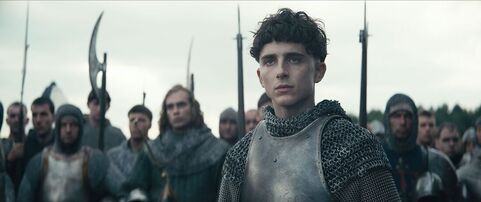
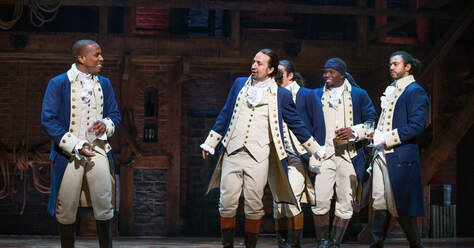
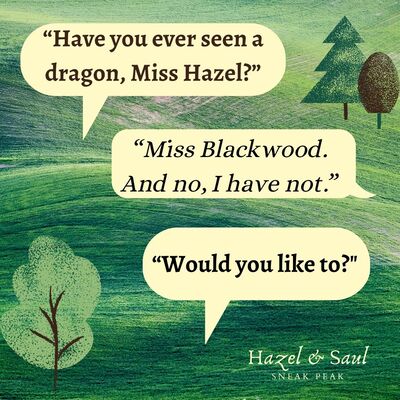
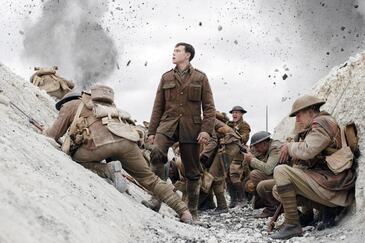
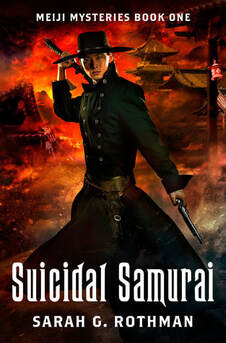
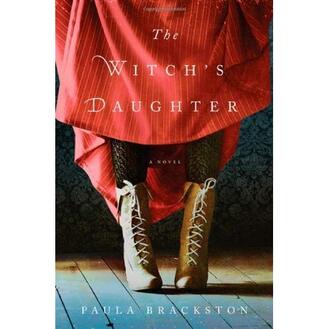
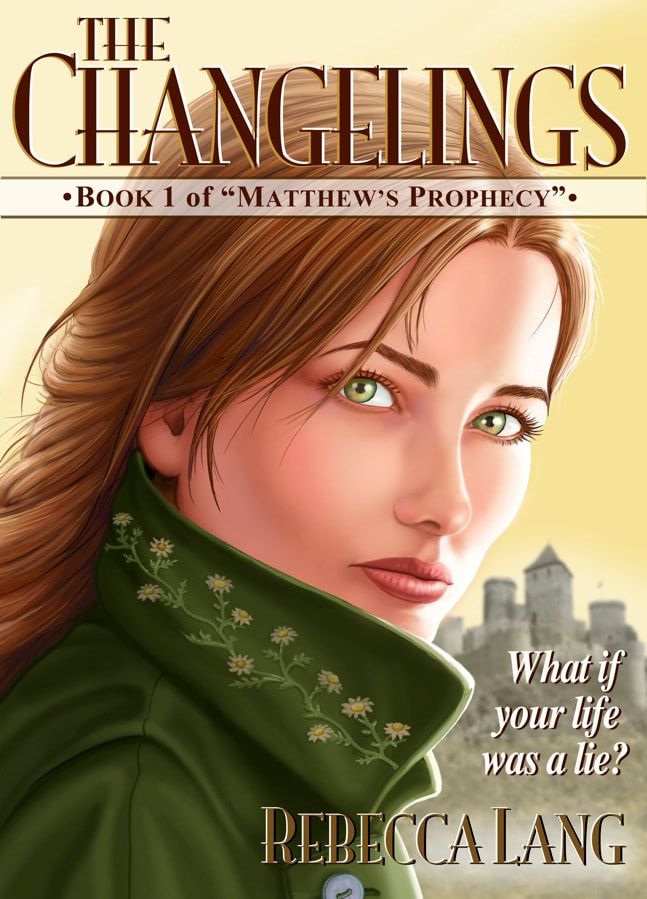
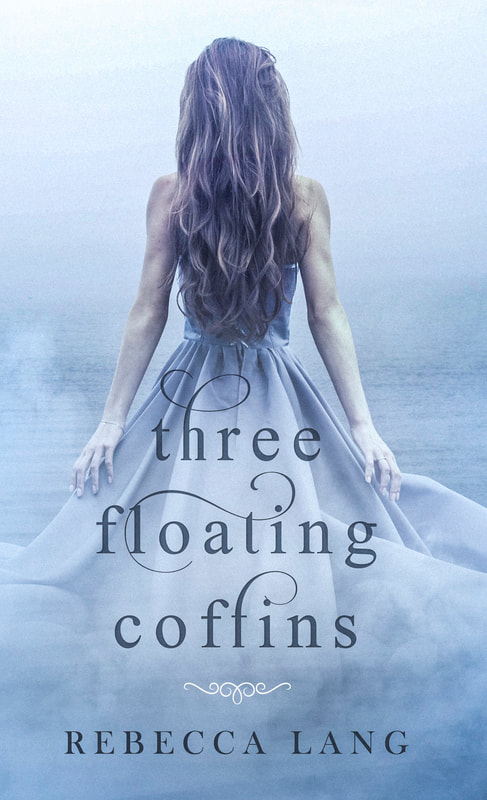
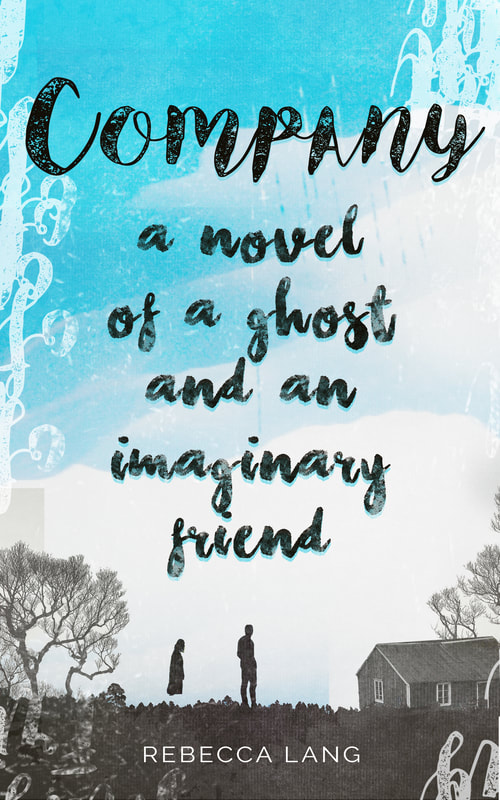
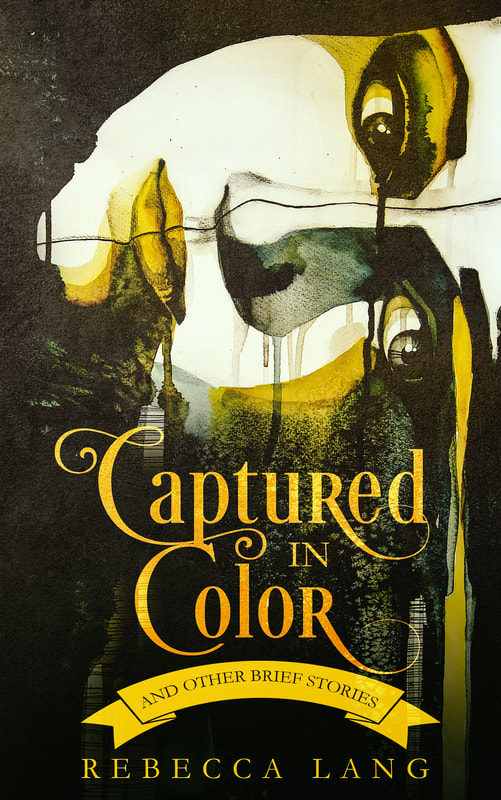
 RSS Feed
RSS Feed